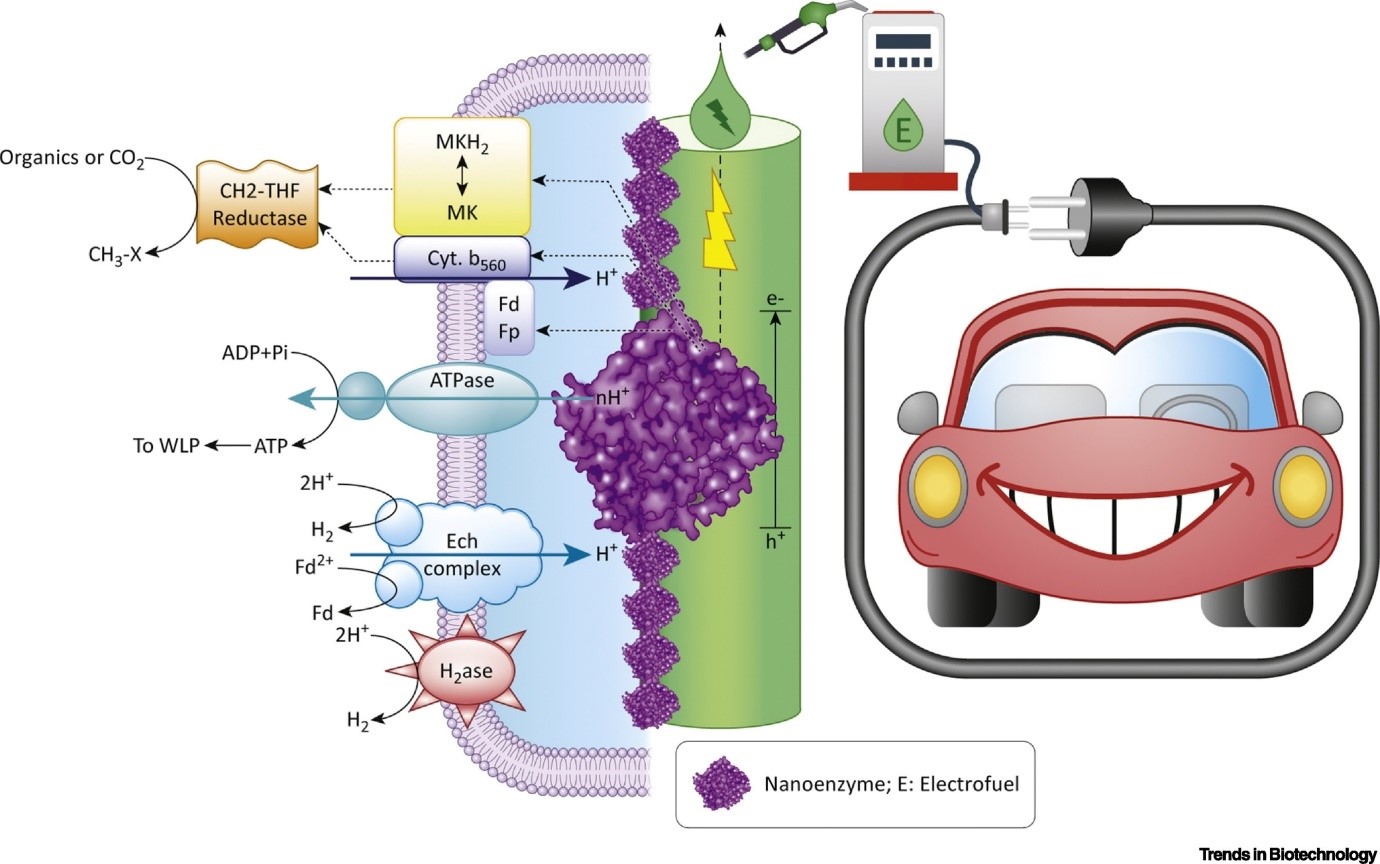Dr. Lakhveer Singh on clean and affordable bioelectrofuels
“Nanoenzyme as a cutting-edge innovation that makes bioelectrofuels more affordable and efficient for sustainable future”
Dr. Lakhveer Singh, Assistant Professor, Department of Environmental Science, publishes a paper on “Bioelectrofuel Synthesis by Nanoenzymes: Novel Alternatives to Conventional Enzyme” in the journal “Trends in Biotechnology” with an Impact factor of 13.74. The paper discusses the vital role of nanozymes to advance Bioelectrochemical cells platforms for improved bioelectrofuels generation and waste remediation. Nanozymes are nanomaterials with intrinsic enzyme-like characteristics that have gained importance over the past decade because of its capability to address the limitations of natural enzymes – low stability, high cost, and difficult storage.
Waste recycle and reuse is the need of the hour, and are the most prioritized research in the 21st century. Innovation with present-day technologies as “Bioelectrochemical cells” with a focus on waste remediation, recovery and reuse is believed to strengthen the resource security along with building a sustainable and resilient society. “In order to mitigate several challenges pertaining to the ineffectual performance of microbial catalysts in electrode frameworks, nanomaterial-based nanozymes exhibit capabilities to boost their efficiency by enhancing microbial connection and interaction with electrode surface.”, explains Dr. Lakhveer.
 Mechanisms of Nanoenzyme–Microbe Interaction That Facilitate Bioelectrofuel Production
Mechanisms of Nanoenzyme–Microbe Interaction That Facilitate Bioelectrofuel Production
THe further says, “The application of nanoenzymes to replace natural enzymes for improved bioelectrofuel production has long been under-rated. Recent advancements in bioinspired mimetics have led to applying nanoenzymes as a favourable bifunctional or multifunctional tool to achieve large turnover frequencies and high stability in bioelectrochemical platforms. Despite a few technical impediments, nanoenzymes guarantees clean and affordable bioelectrofuels”.
For long-term operations, biocompatibility is observed to remain a challenge associated with nanoenzymes. This is because of the concurrent shape change of nanoparticles during its gradual decomposition that often alters their electrocatalytic behaviour in response to prolonged operation, thus adversely affecting the electrofuel productivity. This paves the path for the future research work of Dr. Lakhveer which will focus on the preparation of nanoenzymes based electrocatalysts with doping of plasmonic or paramagnetic noble metals. This will counter the issue of mass loading and slow down the gradual decomposition process to ensure uninterrupted bioelectrofuels supply during long-term operation.

